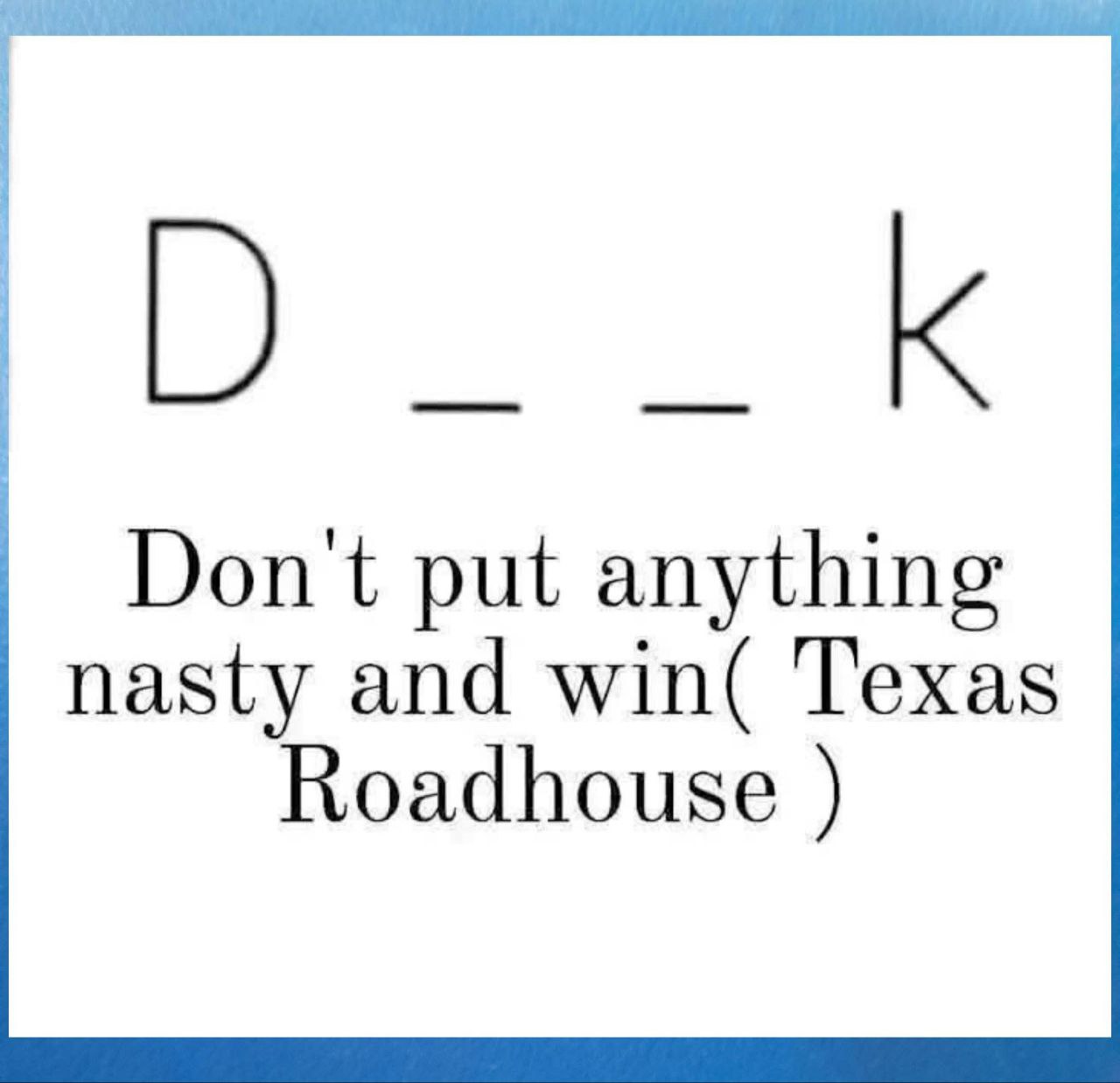Clean Fun with Word Games: Why Brands Like Texas Roadhouse Use Wholesome Puzzles to Engage Audiences
In the age of viral content and social media interaction, brands are constantly seeking creative and engaging ways to connect with their audiences. One clever strategy that continues to grow in popularity is the use of family-friendly word puzzles and brain teasers, like the one seen in the image: a simple prompt — D _ _ K — with a challenge to “Don’t put anything nasty and win.”
At first glance, the incomplete word might appear controversial, but that’s precisely the point — it grabs attention while encouraging clean thinking. The correct and brand-aligned answer here is likely “DUCK,” “DUNK,” or “DECK”, depending on the theme (with “DUNK” being especially fitting for a Texas Roadhouse food-related promotion — think of dunking bread in cinnamon butter or sauces).
🔍 Why It Works: A Look at the Psychology Behind the Game
-
Curiosity Drives Engagement
Incomplete word games naturally spark interest. People want to solve the puzzle and see if they got it right — it’s a mini mental challenge that feels rewarding. -
Clean Humor Builds Trust
By adding the line “Don’t put anything nasty,” the brand sets clear boundaries: this is a wholesome space. It subtly challenges the audience to be clever — not crude. This reinforces a family-friendly image, important for brands like Texas Roadhouse that cater to all ages. -
Viral Potential with Low Risk
This type of content is highly shareable. It’s safe, amusing, and interactive — making it ideal for social media platforms where engagement translates to visibility.
📢 Strategic Branding in Action
Texas Roadhouse, known for its welcoming atmosphere and hearty meals, isn’t just selling food — it’s selling an experience. By associating its name with fun, respectful challenges, the brand deepens its connection with customers while subtly reinforcing its values: community, family, and good-natured fun.
🧠 The Educational Side
These kinds of puzzles also serve a cognitive purpose:
-
Improve pattern recognition
-
Stimulate lateral thinking
-
Encourage family participation (e.g., parents and kids solving together)
It’s marketing, but it’s also a mini mental workout — a win-win.
Conclusion: Clean Creativity Still Wins
In a digital world filled with shock value and over-the-top content, Texas Roadhouse’s word puzzle is a perfect reminder that smart, clean fun can still make a strong impact. It’s a strategic blend of entertainment and branding that invites people to engage, smile, and share — all without crossing the line.
So next time you see “D _ _ K,” keep it classy — and maybe you’ll win a free appetizer while you’re at it.

